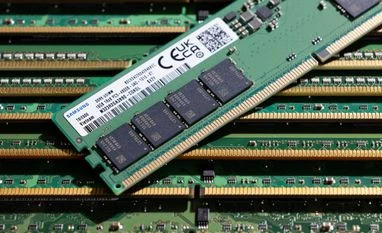Govt seeks partnerships to modernise Mohali's semiconductor lab
Ministry of Electronics and Information Technology aims for public-private collaboration to boost local semiconductor manufacturing capabilities
)
Photo: Bloomberg
Listen to This Article
In a strategic initiative to reduce India's dependency on semiconductor imports, the Ministry of Electronics and Information Technology (MeitY) is looking to form partnerships with commercial and technological experts. The goal is to modernise the Semi-Conductor Laboratory (SCL) in Mohali as part of a larger $10 billion programme to enhance India's semiconductor and display manufacturing ecosystem.
The government's new collaboration aims to transform the existing lab into either a Research and Development centre, a mass production unit, or a hybrid of both. The move has the potential to attract global investment into the country, providing a significant boost to sectors including electronics, IT hardware, and defence.
Sourabh Lele explores how this new public-private partnership initiative plans to establish a robust local ecosystem for chip manufacturing, which is an integral component of various sectors.
In a groundbreaking innovation, ReshaMandi, a Bengaluru-based business-to-business marketplace for textile and fashion, has digitalised the silk cocoon trade. Through a tech-enabled bidding system, the platform is changing the game for farmers such as Panchaiya M Hiremath by ensuring fair prices for their yield, particularly given the limited shelf life of silk cocoons.
Farmers and reelers can now view real-time bid prices on multiple screens at ReshaMandi's warehouse, a development that has significantly reduced transaction times. Mayank Tiwari, the founder and Chief Executive Officer of ReshaMandi, has set his sights on increasing transparency and efficiency in the cocoon trade.
Launched in 2020, ReshaMandi has already diversified its offerings to include other natural fibres. Partnering with over 100,000 farmers, the company employs technologies such as the Internet of Things, artificial intelligence and machine learning to improve farmer productivity by 20 per cent and incomes by almost 30 per cent.
Peerzada Abrar delves into how this technological leap is redefining a traditional industry, empowering both farmers and reelers in the process.
More From This Section
Topics : semiconductor Punjab Silk weaving agriculture economy sericulture projects Tech firms BS Web Reports
Don't miss the most important news and views of the day. Get them on our Telegram channel
First Published: Sep 27 2023 | 9:25 PM IST
